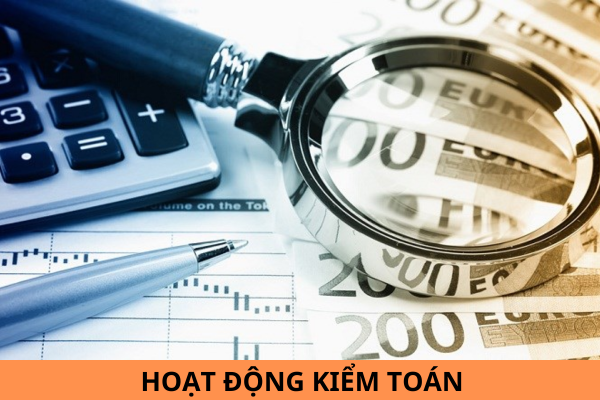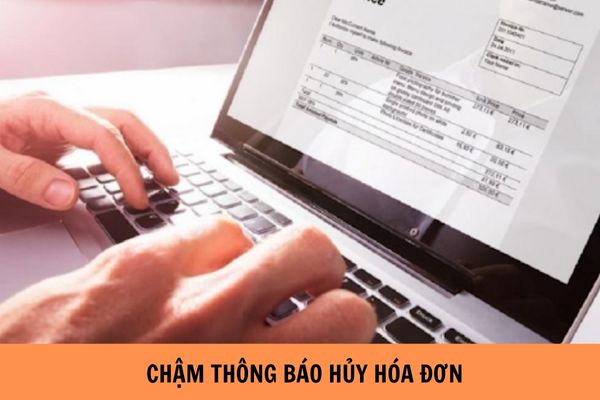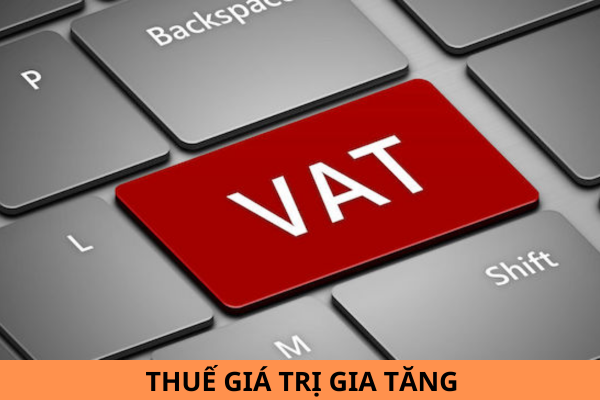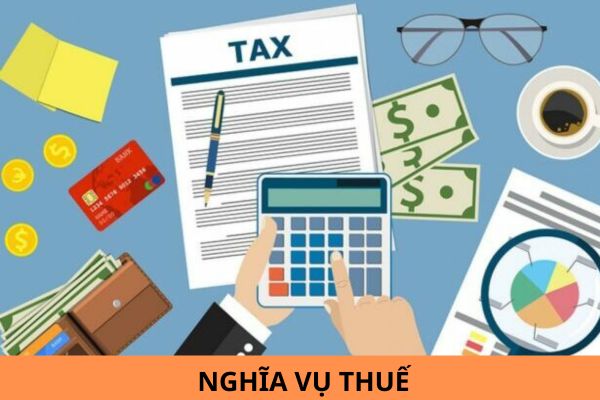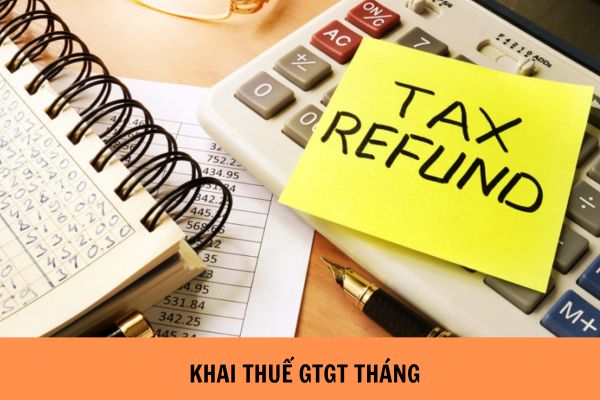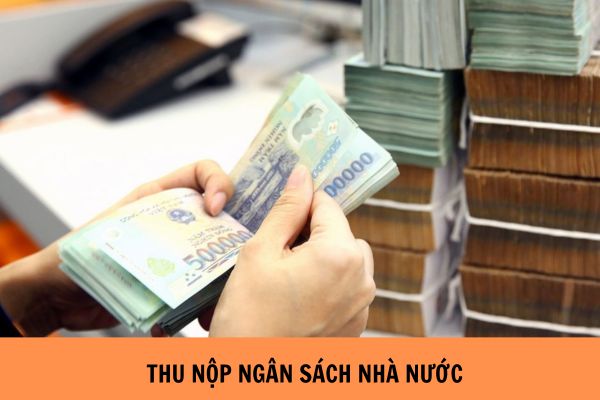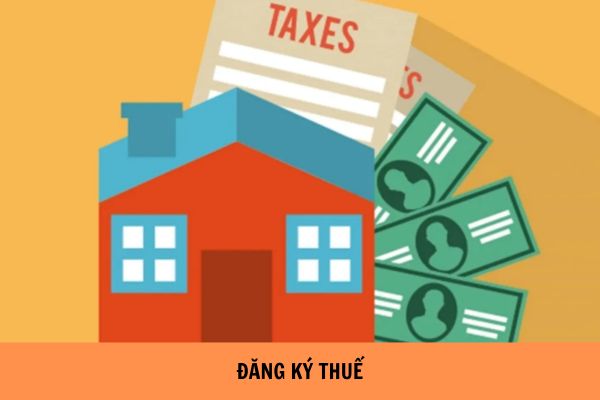If buyers return goods to sellers, do they have to issue invoices for the returned goods in Vietnam?
If buyers return goods to sellers, do they have to issue invoices for the returned goods in Vietnam? What do contents of returned invoices in Vietnam comprise? What is handling for e-invoices when buyers return all goods in Vietnam?
My company bought an electronic measuring device last month. But so far, the company has encountered an error and returned it to the seller and bought a new machine (different value). Now, if I return the goods to the other party, will my company need to issue invoice for the returned goods to the seller? Thank you!
If buyers return goods to sellers, do they have to issue invoices for the returned goods in Vietnam?
Pursuant to Clause 1, Article 4 of Decree 123/2020/ND-CP stipulating rules for issuance, management and use of invoices and records as follows:
1. When selling goods or providing services, the seller shall issue and send invoices to buyers (including goods/services used for sales promotion, advertising or as samples, goods/services gifted, donated, exchanged or used as salary payment to employees and internal use (except goods which are internally rotated in production process), and goods rented, lent or returned). Such invoices shall have adequate contents written according to the provisions in Article 10 hereof, except e-invoices which must follow the standard format prescribed by tax authorities as prescribed in Article 12 hereof.
According to this Article, when the goods are erroneous and the buyer returns the goods to the seller, the seller must issue an invoice for the returned goods and must ensure that all contents are written as prescribed above in Vietnam.
What do contents of returned invoices in Vietnam comprise?
Contents of returned invoices are specified in Article 10 of Decree 123/2020/ND-CP, including:
1. Name, reference number and form number of the invoice. To be specific:
a) The invoice name shall comply with the provisions in Article 8 hereof. For instance: VAT invoice, VAT invoice cum tax refund declaration, VAT invoice cum receipt, sales invoice, public property sales invoice, stamp, ticket, card, and sales invoice on national reserve goods.
b) Form number and reference number of the invoice shall comply with regulations of the Ministry of Finance.
2. Names of copies of tax authority-ordered printed invoices shall comply with regulations of the Ministry of Finance.
3. Invoice number
a) Invoice number is an ordinal number written on the invoice when it is issued by the seller. An invoice number consists of 8 digits, from 1 to 99 999 999, written in Arabic numerals, begins on January 01 or the first day on which the invoices are used and ends on December 31. Numbers of invoices of the same reference number and form number shall be issued in ascending order. Buyers of tax authority-ordered printed invoices may use the invoice numbers pre-printed on such invoices.
If a business entity has multiple points of sale or multiple establishments using the same type of e-invoices of the same reference number by adopting the random access method from an e-invoicing system, invoices shall be issued in ascending order from the date on which the digital or electronic signature is added to the invoice.
b) If the aforementioned rules are not followed, the electronic invoicing system shall ensure that the numbers are generated in chronological order, every invoice number is unique and has no more than 8 digits.
4. The seller’s name, address and TIN
Invoices shall contain the same seller's name, address and TIN as those written on the certificate of enterprise registration, certificate of branch registration, certificate of household business registration, taxpayer registration certificate, TIN notification, investment registration certificate, or certificate of cooperative registration.
5. The buyer’s name, address and TIN
a) If the buyer is a business establishment that has a TIN, the buyer’s name, address and TIN shall be written on the invoice shall be same as those written on the certificate of enterprise registration, certificate of branch registration, certificate of household business registration, taxpayer registration certificate, TIN notification, investment registration certificate, or certificate of cooperative registration.
If the buyer’s name or address is too long, the seller may shorten some common nouns (such as P instead of “Phường” (ward), Q instead of “Quận” (district), TP instead of “Thành Phố” (city), TNHH instead of “Trách nhiệm Hữu hạn" (limited liability), KCN instead of “khu công nghiệp” (industrial park), SX instead of “sản xuất” (manufacturing/ production), CN instead of “Chi nhánh” (branch), etc.) as long as the house number, names of the street, ward, district, city, name of the company are written and conformable with business registration or tax registration of the company.
b) If the buyer does not have a TIN, the invoice will not have the buyer's TIN. In case of sale of special goods/services to an individual mentioned in Clause 14 of this Article, the buyer’s name and address are not mandatory on the invoice. In case of sale of goods/services to a foreigner in Vietnam, the buyer’s information and address may be replaced with information in his/her passport or travel document and his/her nationality.
6. The name, unit, quantity, unit price, amount payable exclusive of VAT, VAT rate, total VAT amount calculated by each VAT rate, total VAT payable and total amount payable inclusive of VAT:
a) Name, unit, quantity, unit price:
- Name of good/service: written on the invoice in Vietnamese language. If the goods fall into different categories, their names shall contain the categories (e.g. Samsung phone, Nokia phone, etc.). In case the right to use or ownership of the goods has to be registered, the invoice shall bear the number or symbol of the goods that is needed for registration (e.g. chassis number, engine number of a vehicle, address, level, dimensions and number of stories of a house, etc.).
If foreign language text is necessary, it must be placed between parentheses () or next to the Vietnamese text, in which case it must be smaller than the Vietnamese text. If the good or service has a pLU code, both the name and the pLU code must be written on the invoice.
- Unit: determined by the seller according to the nature and characteristics of the goods. It can be a unit of measurement (e.g. tonne, kg, g, mg, tael, once, piece, box, can, pack, tube, m3, m2, m...). An invoice for provision of services does not necessarily have the item “Đơn vị tính” (unit). The unit of services is the time of provision of the services and contents of the services.
- Quantity: written by the seller in Arabic numerals according to the unit of goods/services. For special goods/services that are periodically sold/supplied like electricity, water, telecommunications services, IT services, television services, postal and delivery services, banking, securities or insurance, the invoice shall specify the good purchase or service provision cycle. An invoice for a service periodically provided may be accompanied by a list of goods/services supplied. This list shall be retained together with the issued invoice to serve inspections by competent authorities.
The invoice must bear the text “kèm theo bảng kê số…, ngày...tháng...năm” (“This invoice is accompanied by the list No…..date….”). This list shall bear the seller’s name, TIN and address, name, quantity and unit of goods/services, total amount payable, date, name and signature of the person preparing the list. If the seller pays VAT by adopting the credit-invoice method, the list must have the items “thuế suất giá trị gia tăng” (VAT rate) and “tiền thuế giá trị gia tăng” (VAT amount). Total amount payable must be same as that specified on the VAT invoice. Goods/services sold shall be enumerated in chronological order. The list must bear the text “kèm theo hóa đơn số ngày...tháng...năm” (“This list is accompanied with the invoice No…..date….”).
- Unit price: written by the seller according to the unit of goods/services. If the invoice is accompanied by a list of goods/services supplied, this invoice does not necessarily bear the unit price.
b) VAT rate: The VAT rate specified in an invoice varies according to the type of goods/services as prescribed by the Law on VAT.
c) The amount payable exclusive of VAT, VAT amount by VAT rate, total VAT amount payable, and amount payable inclusive of VAT shall be written in Arabic numerals and expressed as VND currency, unless the goods/services are paid for in a foreign currency without having to be converted into VND.
d) Total amount payable on the invoice shall be written in Arabic numerals and Vietnamese language, and expressed as VND currency, unless the goods/services are paid for in a foreign currency without having to be converted into VND.
dd) In case a discount or sales promotion is offered by the seller, the invoice must clearly specify that discount or sales promotion. The price on which VAT is imposed (VAT-exclusive price) in case of discount or sales promotion shall be determined in accordance with the Law on VAT.
e) In case an airline runs a ticketing system established in accordance with international practices, service charges on air tickets (including system administration fees, air ticket change fees, and other fees) and airport service charges (including passenger service fees, X-ray screening fees and other fees) on invoices are inclusive of VAT. Amounts on air tickets may be rounded to the nearest thousandth in accordance with regulations of the International Air Transport Association (IATA).
7. Signatures of the buyer and the seller:
a) Tax authority-ordered printed invoices must bear the seller’s signature and seal (if any) and the buyer’s signature (if any).
b) With regard to e-invoices:
In case the seller is an enterprise or organization, the seller’s digital signature on the invoice is the digital signature of such enterprise or organization; in case the seller is an individual, it will be the digital signature of the individual or another person authorized by the individual.
In case an electronic invoice does not necessarily have the seller’s and the buyer’s digital signatures, the provisions in Clause 14 of this Article 3 shall apply.
8. The issuance date of the invoice shall comply with the provisions in Article 9 hereof and be written in "ngày, tháng, năm” (day/month/year) format of the calendar year.
9. The date of the digital signature on an e-invoice is the date on which the seller or buyer adds his/her digital signature to that e-invoice and expressed in "ngày, tháng, năm” (day/month/year) format of the calendar year. If the date of a digital signature on an issued e-invoice is different from the issuance date of the e-invoice, the tax declaration date shall be the issuance date of that e-invoice.
10. The tax authority’s authentication codes on authenticated e-invoices shall comply with the provisions in Clause 2 Article 3 hereof.
11. Fees and charges payable to state budget, discounts and sales promotions (if any) shall comply with the provisions in Point e Clause 6 of this Article and relevant contents (if any).
12. Name and TIN of the invoice printing service provider shall be specified in tax authority-ordered printed invoices.
13. Text, numbers and currencies on invoices:
a) The text on an invoice must be written in Vietnamese language. If foreign language text is necessary, it must be placed between parentheses ( ) or next to the Vietnamese text, in which case it must be smaller than the Vietnamese text. If the text has to be written in Vietnamese without diacritics, it must not cause the readers to misunderstand its contents.
b) Numbers on the invoice must be written in Arabic numerals: 0, 1, 2, 3, 4, 5, 6, 7, 8, 9. The seller may decide whether to use a period (.) as thousands separator and a comma (,) as a decimal separator, or vice versa.
c) The currency on invoices shall be VND, expressed as “D".
- If a foreign currency is used in an economic/financial transaction in accordance with regulations of the law on foreign exchange, the unit price, amounts, VAT amount by VAT rate, total VAT amount, and total amount payable shall be written in the foreign currency. The currency unit shall be the name of that foreign currency. The seller shall write the exchange rate of the foreign currency to VND on invoices in accordance with the Law on Tax administration and its instructional documents.
- International currency symbols shall be used. (e.g. 13.800,25 USD – Thirteen thousand eight hundred US dollars and twenty five cents, or 5.000,50 EUR - Five thousand euros and fifty cents).
- If the goods/services are paid for in a foreign currency in accordance with the Law on foreign exchange and on which tax is also paid in a foreign currency, the total amount payable shall be written in the foreign currency instead of converted into VND.14. Exceptions:
a) An electronic invoice does not necessarily have the buyer’s electronic signature, even if goods/services are sold overseas. In case the buyer is a business establishment and both the buyer and the seller agrees to use digital or electronic signatures on the e-invoice issued by the seller, the invoice shall bear the buyer’s and the seller’s digital or electronic signatures as agreed.
b) E-invoices separately issued by tax authorities do not necessarily bear the buyer’s and the seller’s digital signatures.
c) The e-invoice issued by a supermarket or shopping mall to a non-business buyer does not necessarily bear the buyer’s name, address and TIN.
E-invoices for sale of oil and gas to non-business individuals do not necessarily bear the name, form number, reference number, and number of the invoice; the buyer’s name, address, TIN, electronic signature; the seller’s digital or electronic signature; VAT rate.
d) E-invoices in the form of stamps, tickets or cards do not necessarily contain the seller’s digital signature (except for those authenticated by tax authorities), the buyer’s information (name, address and TIN), VAT rate and VAT amount. Pre-priced electronic stamps, tickets and cards do not necessarily contain the unit, quantity and unit price.
dd) Electronic air tickets issued via websites and e-commerce systems to buyers that are non-business individuals following international practices do not necessarily bear the reference number, form number and number of the invoice, VAT rate, the buyer’s TIN and address, and the seller’s digital signature.
In case a business or non-business organization buys air tickets, the electronic air tickets issued via websites or e-commerce systems to individuals of that organization following international practices are not considered e-invoices. Airliners shall issue e-invoices with sufficient information and provide them for their buyers.
e) Invoices for construction and installation, or construction of houses for sale under installment plans do not necessarily bear the unit, quantity and unit price.
g) Delivery and internal transfer note shall bear information on the internal transfer order, recipient’s name, deliverer’s name, sending address, receiving address, and vehicle. To be specific: the buyer’s name is the recipient’s name and the buyer’s address is receiving address; the seller’s name is the deliverer’s name and the seller’s address is sending address and vehicle; tax rate, tax amount and total amount payable are not required.
Delivery notes for goods sent to sales agents shall specify information on the economic contract, deliverer, vehicle, sending address, receiving address, name of goods/products, unit, quantity, unit price and amounts. To be specific: number and date of the signed economic contract; deliverer’s full name, delivery contract (if any), and the seller’s address which is the sending address.
h) Invoices for interline payment between airliners issued in accordance with regulations of the International Air Transport Association (IATA) do not necessarily have the reference number and form number of the invoice, the buyer’s name, address, TIN and electronic signature, unit, quantity, unit price.
i) Invoices issued by an airline to its agents according to reports verified by two parties and general statements do not necessarily contain the unit price.
k) Invoices for construction, installation, production or provision of products/services of enterprises servicing national defense and security in accordance with the Government's regulations do not necessarily bear the unit, quantity and unit price, and shall have the goods/services provided under the signed contracts written at the columns of name of goods/services.
15. Other contents of invoices
In addition to the contents specified in Clause 1 through 13 of this Article, enterprises, organizations, household or individual businesses may add their logos, brands, trademarks or photos to the invoices. Depending on characters or nature of each transaction and management requirements, the invoice may contain information about the sale contract, delivery order, customer code and other information.
16. Public property sales invoices shall be issued according to the Form No. 08/TSC-HD enclosed with the Government’s Decree No. 151/2017/ND-CP dated December 26, 2017.
Thus, the returned invoice must contain all the contents as prescribed above. In case of using electronic invoices, it must follow the standard data format of the tax authorities in Vietnam.
What is handling for e-invoices when buyers return all goods in Vietnam?
According to Clause 2, Article 19 of Decree 123/2020/ND-CP stipulating handling of erroneous invoices as follows:
2. If an authenticated or unauthenticated e-invoice which has been sent to the buyer is detected by either the buyer or seller to contain errors, it shall be handled as follows:
a) If the buyer’s name or address is wrong but the TIN and other information are correct, the seller shall inform the buyer of the errors and is not required to re-issue the invoice. The seller shall inform the tax authority of the erroneous e-invoice by using Form No. 04/SS-HDDT provided in Appendix IA enclosed herewith, unless data about the erroneous unauthenticated e-invoice is not yet sent to the tax authority.
b) If the information about TIN, amount, tax rate, tax amount or goods on the invoice is wrong, the error shall be handled by adopting one of the following methods:
b1) The seller shall create an e-invoice to correct the erroneous one. The seller and the buyer shall prepare a document specifying the errors as agreed upon between them before the seller issues a correction e-invoice.
The correction e-invoice shall bear the text “Điều chỉnh cho hóa đơn Mẫu số... ký hiệu... số... ngày... tháng... năm” (“This invoice corrects the invoice form No……….., reference No………, No………dated……….”).
b2) The seller issues a new e-invoice to replace the erroneous one. The seller and the buyer shall prepare a document specifying the errors as agreed upon between them before the seller issues a new e-invoice to replace the erroneous one.
The replacing invoice shall bear the text “Thay thế cho hóa đơn Mẫu số... ký hiệu... số... ngày... tháng... năm” (“This invoice replaces the invoice form No……….., reference No………, No………dated……….”).
The seller shall add the digital signature on the e-invoice which is issued to correct or replace the erroneous one, then send it to the buyer (in case of unauthenticated invoices) or send it to the tax authority for its issue of a new authentication code (in case of authenticated invoices).
c) In the civil aviation branch, ticket change/refund invoices are considered as correction invoices without bearing the text “Điều chỉnh tăng/giảm cho hóa đơn Mẫu số... ký hiệu... ngày... tháng... năm” (“Making an increase/decrease in the invoice form No…….., reference No……… dated…….”. Airlines are allowed to issue invoices in case of change/refund of tickets issued by their agents.
In Clause 1, Clause 3, Article 7 of Circular 78/2021/TT-BTC stipulates:
1. Erroneous e-invoices:
a) If the issued e-invoice contains errors and requires a new tax authority’s identification code or the erroneous e-invoice needs to be corrected or replaced as prescribed in Article 19 of Decree No. 123/2020/ND-CP, the seller shall use Form No. 04/SS-HDDT provided in Appendix No. IA enclosed with Decree No. 123/2020/ND-CP to notify the correction of each or multiple erroneous e-invoices, and send a notice using Form No. 04/SS-HDDT to the tax authority by the last day of the VAT declaration period in which erroneous e-invoices are handled;
b) If an invoice has been issued when receiving advance payment or during the service provision as prescribed in Clause 2 Article 9 of Decree No. 123/2020/ND-CP but then the service provision is cancelled or terminated, the seller shall cancel the issued e-invoice and notify the tax authority of such cancellation of invoice using Form No. 04/SS-HDDT provided in Appendix No. IA enclosed with Decree No. 123/2020/ND-CP;
c) If the erroneous e-invoice has been handled by correction or replacement by the seller as prescribed in Point b Clause 2 Article 19 of Decree No. 123/2020/ND-CP, but then is found to have other errors, these errors shall be handled adopting the same method as the initial error;
d) The seller shall send a notice of results of examination of erroneous e-invoices (using the Form No. 04/SS-HDDT in Appendix IA enclosed with Decree No. 123/2020/ND-CP) to the tax authority by the deadline specified in the notice form No. 01/TB-RSDT provided in Appendix IB enclosed with Decree No. 123/2020/ND-CP; the seller’s notice must also indicate the ground for examination which is the tax authority’s notice form No. 01/TB-RSDT (including number and date of the notice);
dd) If the issued invoice which does not necessarily bear form number, reference number or number contains error, the seller shall only correct the erroneous invoice without cancelling or replacing it;
e) If the value specified in the invoice is wrong, an increase ( “+” mark) or decrease ( “-“ mark) shall be specified in the invoice according to the actual value.
3. The supplementation of tax dossiers concerning corrected or replaced e-invoices (including cancelled e-invoices) shall be carried out in accordance with regulations of the Law on tax administration.
Pursuant to the above provisions in Vietnam, in case the seller issues an invoice to the buyer and the buyer returns the goods, the company shall cancel the e-invoice made, notify the tax authority of the cancellation of the e-invoice and make declarations to reduce output value-added tax revenue at the time of receipt of goods in accordance with regulations on handling of erroneous invoices.
Best Regards!
